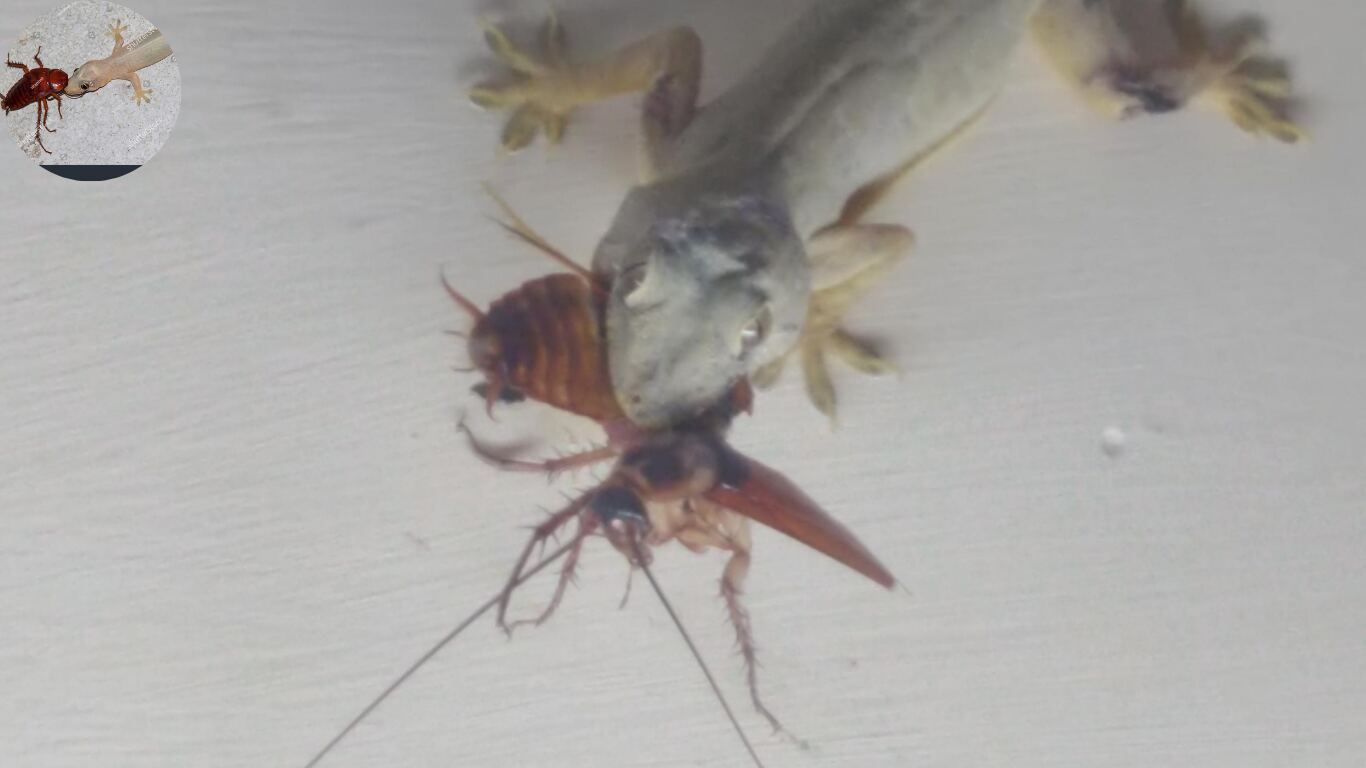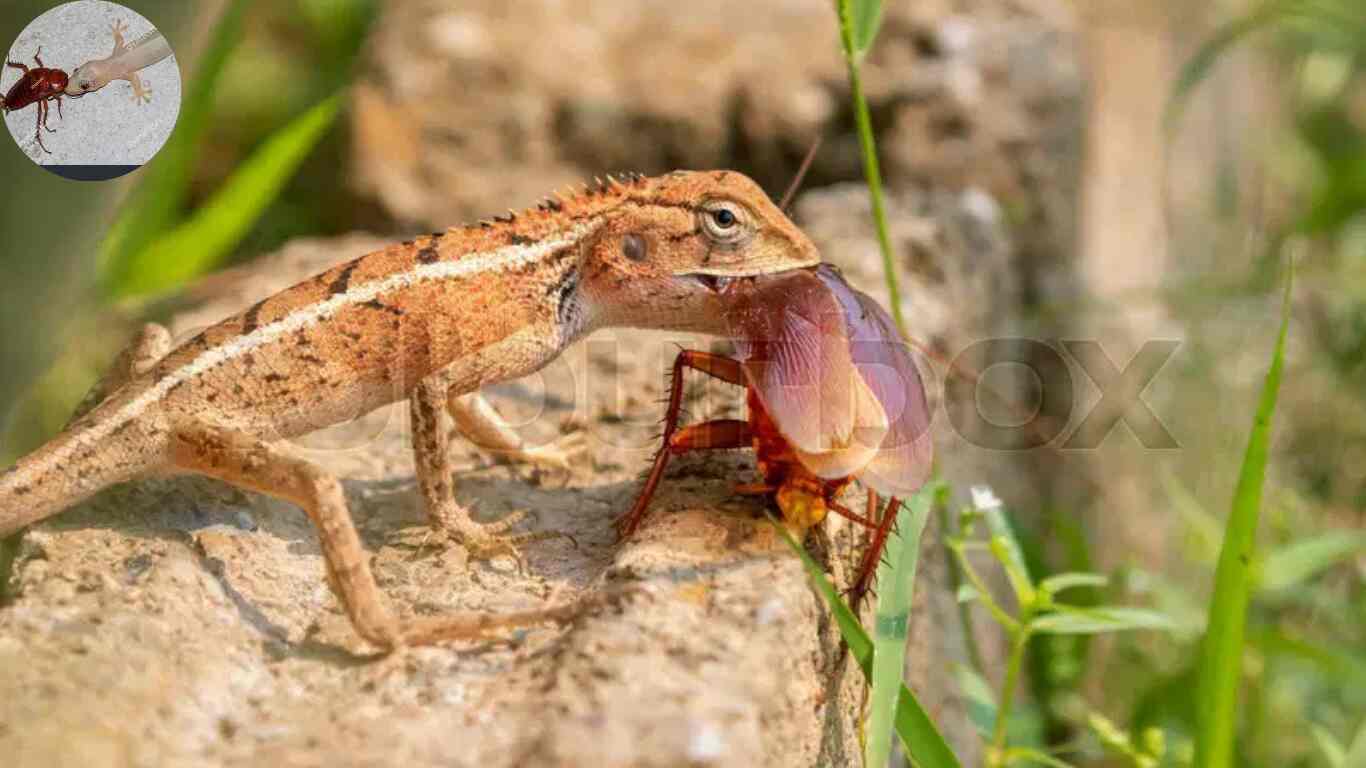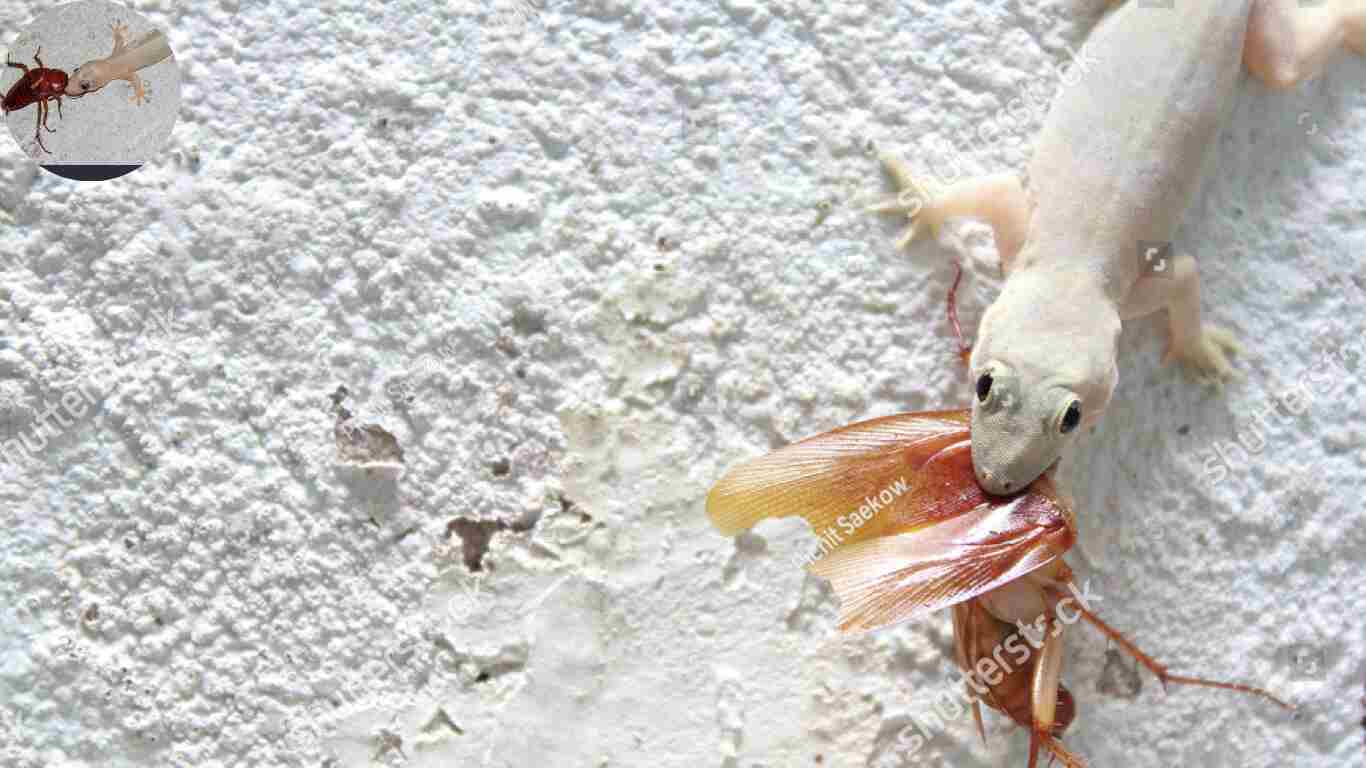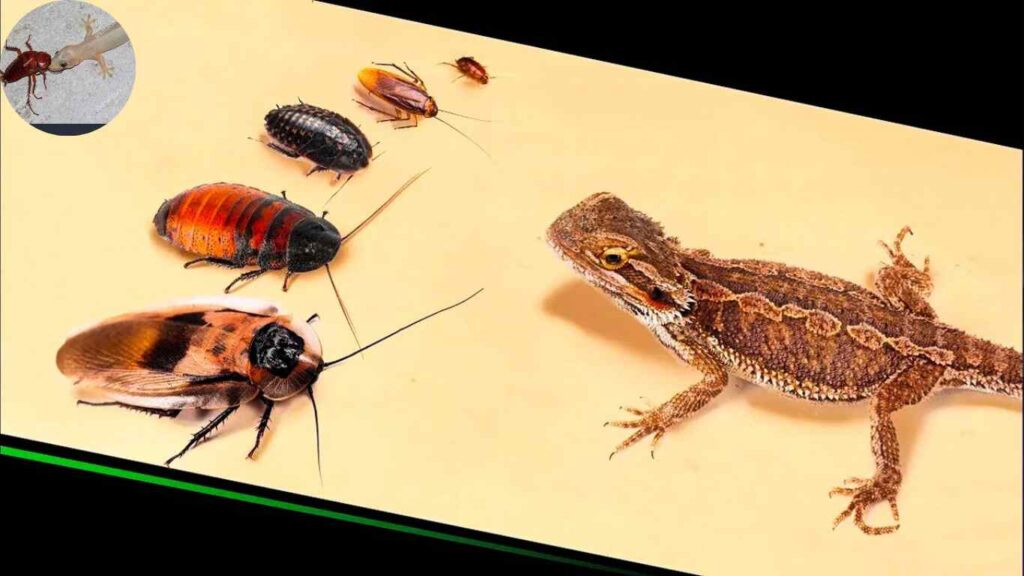Household pests are an annoyance we all deal with at some point, and among the most common are cockroaches and house lizards. These two creatures often cross paths in our homes, raising an interesting and widely asked question: “Does a house lizard eat cockroaches?” If you’ve ever spotted a lizard lurking near a cockroach, you might have wondered if these tiny reptiles help control cockroach infestations.
| Aspect | Details |
|---|---|
| Dietary Preference | Primarily insectivorous, focusing on live prey like cockroaches. |
| Cockroach Consumption | Can eat small cockroaches (e.g., German/Dubia species), up to 20 per serving5. Larger roaches may be avoided due to size constraints. |
| Hunting Behavior | Rely on movement detection; rarely consume dead cockroaches. |
| Infestation Control | Limited effectiveness due to prey size limitations and preference for live insects. |
| Associated Risks | May ingest disease-carrying insects, leading to contaminated droppings. |
In this detailed guide, we will explore the eating habits of house lizards, their relationship with cockroaches, and whether they can serve as a natural solution to pest problems. By the end, you’ll clearly understand house lizards’ role in maintaining a pest-free environment.
Understanding House Lizards
What Are House Lizards?
House lizards, commonly known as house geckos, are small reptiles that belong to the Gekkonidae family. These lizards are lightweight, agile, and typically found in warm climates. They are nocturnal creatures, meaning they are most active at night when they hunt for food.
Biology and Behavior
House lizards have long tails, sticky feet, and soft, scaly skin. Their sticky toe pads allow them to climb walls and ceilings effortlessly, making them well-suited to indoor living. They are cold-blooded, relying on external heat sources to regulate their body temperature.
Why Are They Common in Homes?
Lizards are drawn to homes because of their warmth, safety, and food availability. Spaces like kitchens, basements, and bathrooms provide plenty of hiding spots and access to small insects, their primary food source.
Role in the Indoor Ecosystem
House lizards are not just uninvited guests but are crucial in controlling indoor pest populations. By feeding on insects like mosquitoes, flies, and cockroaches, they help maintain a balanced indoor ecosystem.
The Diet of House Lizards
General Dietary Habits
House lizards are insectivores, meaning their diet primarily consists of insects. Their small size and quick reflexes make them adept hunters of smaller insects like flies, moths, and beetles.
You may also read(how to spiritually clean your house)
What Do They Typically Eat?
Some common prey items for house lizards include:
- Mosquitoes
- Flies
- Ants
- Moths
- Cockroaches
Lizards are opportunistic feeders, meaning they eat whatever insects are readily available.
Nutritional Needs and Preferences
Lizards require a protein-rich diet to sustain their energy levels, especially since they are highly active hunters. Cockroaches, being protein-rich, are an excellent food source for house lizards.
Does Their Diet Change Based on Availability?
Yes! If cockroaches and other preferred prey are scarce, lizards might settle for smaller insects like ants. However, when cockroaches are abundant, they are often a top choice for house lizards due to their size and nutritional value.
Cockroaches as Prey
Why Are Cockroaches Prevalent in Homes?
Cockroaches are resilient pests that thrive in warm, dark, and damp environments. They are commonly found in kitchens, bathrooms, and basements where food and water are easily accessible.
Nutritional Profile of Cockroaches
Cockroaches are a high-protein, energy-rich food source, making them an attractive target for predators like house lizards. Their tough exoskeletons also provide essential nutrients like calcium, vital for lizards’ bone health.
Why Do Lizards Target Cockroaches?
Lizards hunt cockroaches because:
- They are abundant in homes.
- Cockroaches are relatively easy to catch due to their predictable movement patterns.
- They provide a substantial meal compared to smaller insects.
Does House Lizard Eat Cockroach?
The Short Answer: Yes!
House lizards are natural predators of cockroaches. They actively hunt and eat cockroaches whenever the opportunity arises.
Scientific and Observational Evidence
Observational studies and homeowner anecdotes confirm that house lizards frequently consume cockroaches. Videos and firsthand reports often show lizards preying on cockroaches in kitchens, bathrooms, and other parts of homes.
How Lizards Hunt and Consume Cockroaches
Lizards rely on their keen eyesight and quick reflexes to locate and catch cockroaches. They typically wait for the cockroach to come within striking distance before pouncing and using their sharp teeth to capture the insect.
Factors That Influence Lizard Feeding
- Size of the Cockroach: Lizards prefer smaller cockroaches that are easier to catch and eat.
- Availability of Prey: Lizards might not prioritize cockroaches if other insects are abundant.
- Lizard Species: Some species are more inclined to eat cockroaches than others.
Types of Lizards That Eat Cockroaches
Common Lizard Species That Prey on Cockroaches
- House Geckos: These are the most common lizards found indoors and are highly effective at catching cockroaches.
- Anoles: Found in warmer regions, anoles are also known to hunt and eat cockroaches.
- Skinks: Although less common indoors, skinks are insectivorous and occasionally consume cockroaches.
Why House Geckos Excel at Cockroach Hunting
House geckos are small, agile, and perfectly adapted to indoor environments, making them the most efficient cockroach hunters among lizards.
Benefits of House Lizards Eating Cockroaches
Natural Pest Control
Lizards reduce cockroach populations naturally, without the need for harmful pesticides. This makes them an eco-friendly pest control solution.
Health and Environmental Benefits
Unlike chemical pesticides, lizards don’t introduce toxins into your living space. This is especially important for households with children and pets.
A Cost-Effective Solution
Lizards in your home can save you money on professional pest control services.
Drawbacks or Concerns
While lizards are harmless to humans, some might find their presence unsettling. Additionally, lizard droppings can be a minor nuisance.
The Science Behind the Predator-Prey Relationship
How Do Lizards Locate Cockroaches?
Lizards rely on their sharp vision and ability to detect movement to locate prey, even in low-light conditions.
Hunting in the Dark
House lizards are nocturnal hunters, which makes them especially effective at catching cockroaches that are most active at night.
Impact on Cockroach Behavior
Lizards in a home can alter cockroach behavior, making them more cautious and less active in exposed areas.
Real-Life Observations and Case Studies
Homeowner Experiences
Many homeowners have reported seeing house lizards actively hunting and eating cockroaches, particularly in kitchens and bathrooms.
Scientific Studies
Research on house lizard diets confirms that cockroaches make up a significant portion of their food intake when available.
Myths and Misconceptions
Common Myths About Lizards and Cockroaches
- “Lizards are dangerous to humans.” In reality, house lizards are harmless and avoid human contact.
- “Lizards bring diseases.” Unlike cockroaches, lizards do not spread harmful pathogens.
Addressing Fears
If you’re afraid of lizards, remember that they are more scared of you than you are of them. Their primary goal is to hunt insects, not to bother humans.
How to Encourage Natural Pest Control
Tips for Attracting House Lizards
- Avoid using chemical pesticides that could harm lizards.
- Keep your home warm and provide access to small insects.
Creating a Lizard-Friendly Environment
Plants, open windows, and minimal pesticide use can encourage lizards to reside in your home.
Summary Table
QuestionShort AnswerDetails
Does a house lizard eat cockroaches? Yes, House lizards are natural predators of cockroaches.
Is it safe to have lizards indoors? Generally, yes, it harms humans and benefits pest control.
Do all lizards eat cockroaches? No, it depends on species and individual preferences.
Conclusion
In conclusion, house lizards eat cockroaches, making them a valuable ally in controlling indoor pest populations. While they might not eliminate all cockroaches, they can significantly reduce their numbers and provide a natural, eco-friendly alternative to chemical pesticides.
If you’re dealing with a cockroach problem, consider embracing the presence of house lizards as part of your pest control strategy. With their help, you can enjoy a cleaner, healthier home environment.
You may also read(why does my house smell like cinnamon)
